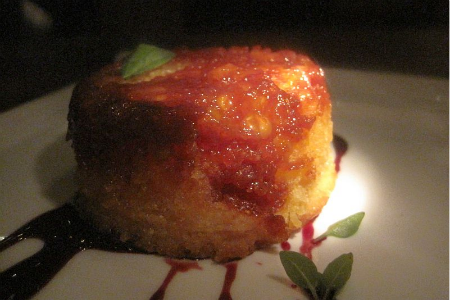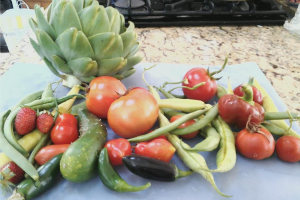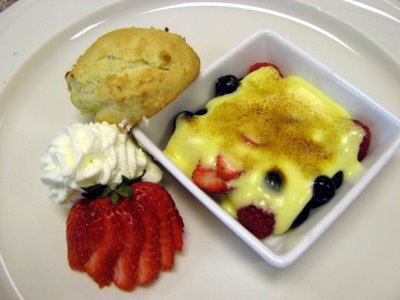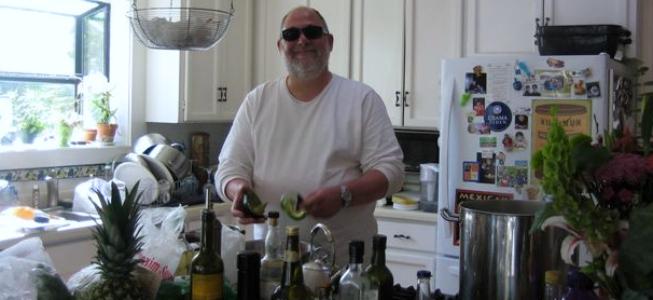Part time science teacher, part time chef, veteran teacher Andrew Goldenkranz:
1. Describe your perfect last meal and why?

I think my perfect last meal would be, different kinds of cheese, olive oil, figs, berries, a nice bottle of wine, and some really crusty sort of bread. And why? Because what I like to present on a plate, either for cooking or eating, is a variety as opposed to just focusing on one thing.
2. When did you start cooking?
As an adult, I really got into cooking obviously living in this part of California where we’re surrounded by so much fresh, high quality food. Then also as my wife and I and our family got involved into nonprofit and sort of a philanthropic community service world, I realized that I have some time. We don’t have a lot of money to write big checks but [this is] something that I could do, so I started my relationship with community organizations doing catering for their annual dinners and fundraising dinners and that was how I got good at it.
3. What organizations do you cook for?

Generally, I’ll do five or six big events per year and by big I mean in the 250 range. For example, I have a big community day for the Boys and Girls Club in Santa Cruz coming up. I have also done big dinners for Habitat for Humanity. [My family and I] do some work for the congregation that we belong to. So in addition to those big events, what I’ll sometimes do is when organizations have an auction, I’ll auction off a VIP dinner, a really elegant dinner, for ten or twelve people at someone’s house or at my house.
It’s gratifying that people will donate [a] couple thousand dollars just for dinner for ten. It’s also nice because they’re supporting the organization and supporting the sort of confidence I have in what I do.
4. How many hours a week do you spend cooking?
For the major events, I have gotten to the point where I can cook it in a couple of days. So if I’m doing something on a Saturday, then I’ll start preparing on Thursday, and I can really put it together in about 48 hours. If it is a VIP dinner, I can put it together in about a day. There are certain recipes that demand some overnight preparation, but those are exceptions.
5. What was the craziest thing you’ve ever experimented with while cooking?
There was an event this summer and it’s called the snout to tail experience. As Americans, when we prepare meat, we typically only eat the muscle. So we don’t eat any of the organs or other parts but the snout to tail, started with a 100 pound pig. So we needed to figure out what are we going to do with the feet, what are we going to do with the nose, and what are we going to do with the tail… so the challenge was you had to take advantage of every last inch of that animal and that was a completely new adventure. It was fun as a science teacher to solve a puzzle that you’ve never solved before.
6. What’s your favorite thing to cook? And why?

I don’t have a single favorite, sometimes it’s just whatever strikes me. I enjoy cooking Mediterranean food, but increasingly, I’m started to work a lot more with seafood which fits great into that.
7. How has cooking changed your life?
It’s caused me to pay more close attention to food and especially the last four or five years, where I have emphasized using fresh and local ingredients when I can. It’s also given me a nice platform to work with different people in different communities because no matter where you go, you think that you’re very different from somebody, but when we’re talking about food; everyone’s got a story. It’s a cool common denominator that helps bring people together.
8. What do you think is the most versatile ingredient and why?
I think starting with the basics, corn and rice [are important] because those are the basics in any type of culture. In terms of stuff that is always on my shelf are olive oil, high quality grains, dried berries and different types of flavors and at that point we can go just about anywhere.
9. If you could pick anyone in the world, who would you choose to cook for?














